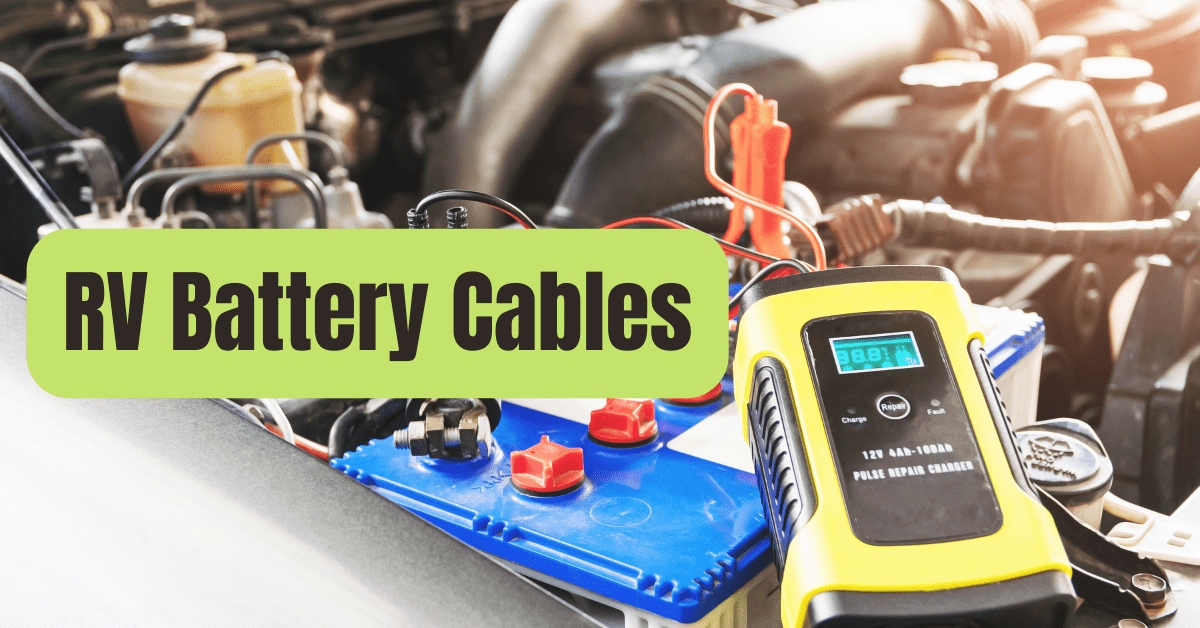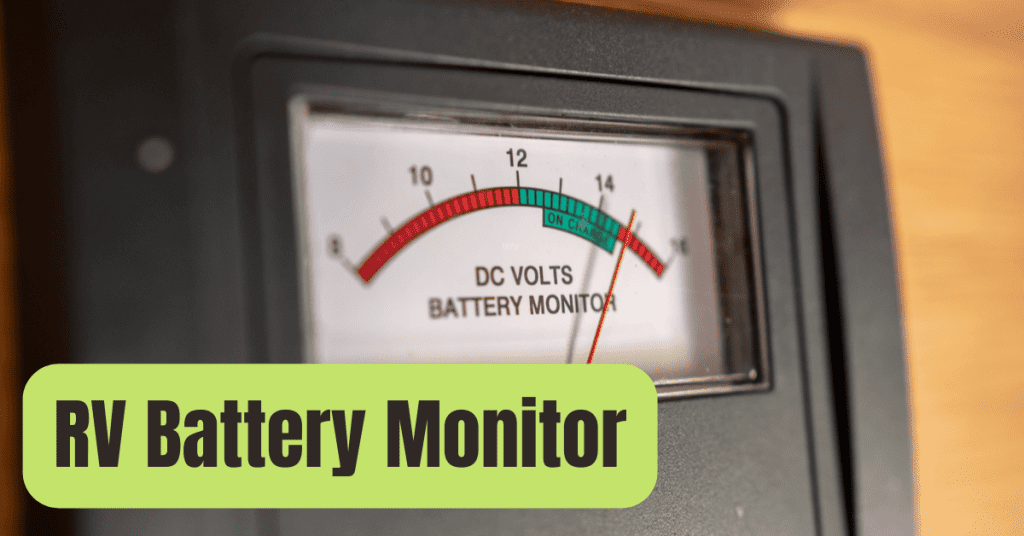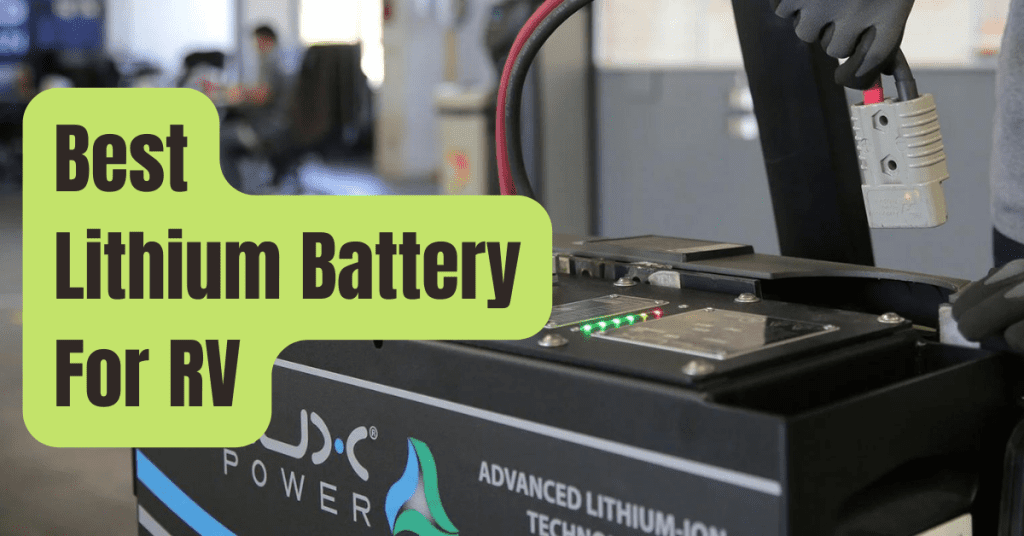RVers and boaters often change their battery systems.
Selecting the appropriate battery cable size for your system is crucial, whether you’re upgrading an existing battery or installing a brand-new solar power system.
Let’s get started by discussing why choosing the proper cable size is so crucial and, more importantly, how to accomplish it!
A Battery Cable Is What Gauge Of Wire?
The primary blood vessel of your RV’s electrical system is a cable that comes straight from the battery.
Since they are the only cables and wires in your RV that are powered directly by the batteries, they often carry greater current (expressed in amps) than the rest.
As a consequence, your battery cable size will need to be the thickest and rated for the greatest current.
The amount of electricity your RV needs will determine the size of cable you need for your battery wiring.
There isn’t just one right response to this question.
We’ll go through how to determine how much electricity your RV consumes and how to utilize that knowledge to choose the right cable size for your batteries in the sections below.
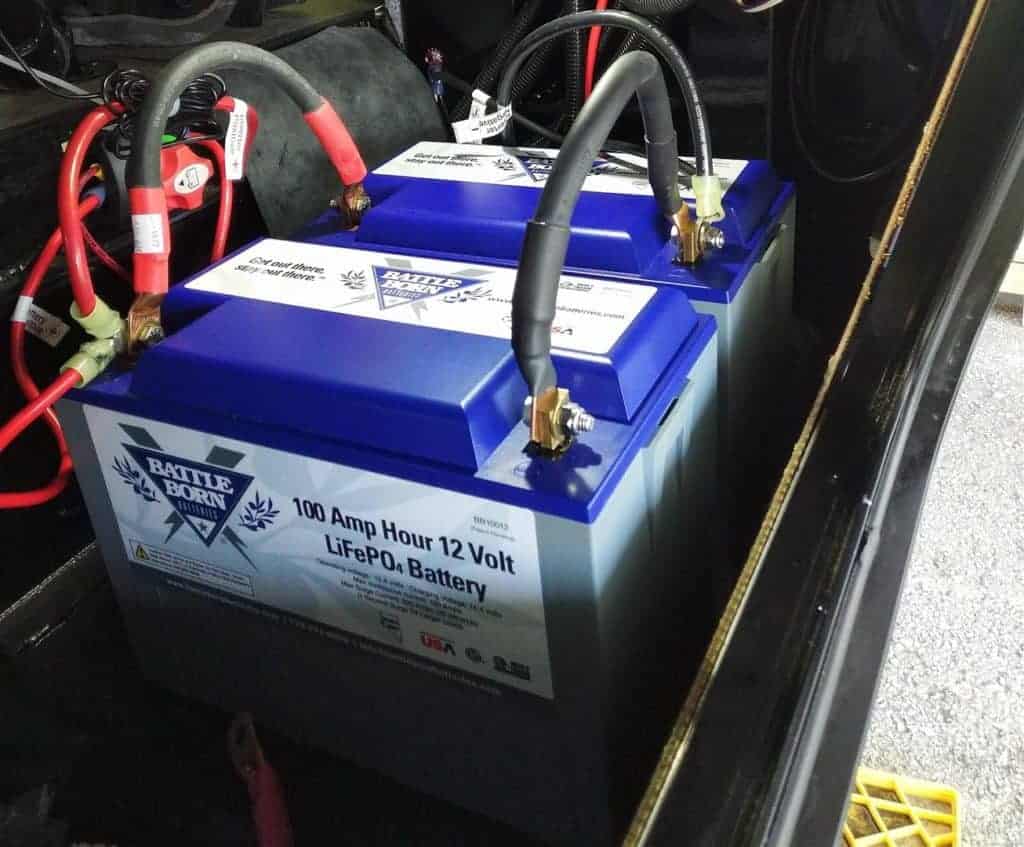
What Is A Wire Gauge?
A wire’s diameter or thickness may be measured using a wire gauge.
The American Wire Gauge scale, or AWG for short, is the US standard for gauging wires.
The higher the cable rating number in the AWG system, the thinner the wire is and the less current it can carry.
The figure below, for instance, shows that 12 AWG, which has a diameter of 2.05 mm, can transport 20–25 amps up to 4 feet.
With a 1.62 mm diameter, 14 AWG can only move 15-20 amps over the same distance.

Specifying Factors for Wire Size Requirements
More current may go further on thicker cables.
Without going into the math, the explanation behind this is that when a cable’s diameter lowers or its length grows, its resistance rises.
Therefore, the size cable you need relies on both the amount of current you must carry and the length of your cable runs.
For this reason, the AWG sizing chart displays the various current capabilities at different lengths.
The necessary cable thickness grows together with the cable length.
Additionally, wires are rated for a maximum voltage.
When choosing the battery cable size to utilize, you do not need to consider the voltage rating since the RV battery cables will only be 12 volts.
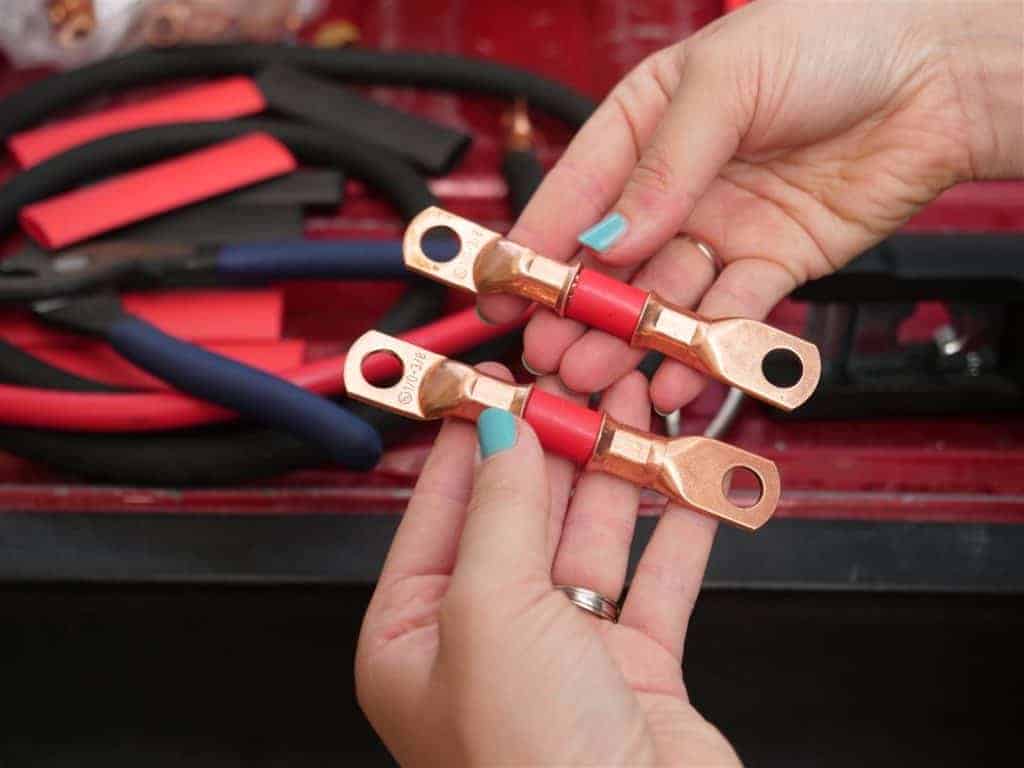
What Happens If The Battery Cable Is Too Small?
Thick wires have lower resistance, as we already explained.
When current flows over a wire with resistance, two major things happen.
Low Voltage
A voltage decrease is the first consequence.
This indicates that there is a difference between the voltage at the battery and the voltage at the wire’s end.
Electronics won’t function if there is a significant voltage drop.
Using Ohm’s law, V=I*R, one may determine the voltage drop in a wire.
Voltage drop (V), current through the wire (I), and resistance (R) are the three variables.
As you can see, the voltage drop will grow if the current, resistance, or both are increased.
Resistance in a wire is affected by the wire’s overall length as well as its thickness (the gauge).
An extreme voltage drop that may prohibit your gadgets from functioning if your battery wires are too little is one problem that might arise.
Wires Warm Up
The generation of heat occurs when current flows via a wire as the second item that occurs.
More resistance in the wire increases heat generation in a manner similar to voltage loss.
Wires that are too small may get so hot that the casing melts and starts a fire.
The greatest danger associated with selecting a battery cable that is too tiny is fires, which are much more destructive than excessive voltage loss.
A common outcome of RV fires is the total loss of both the RV and its contents.
Wire that is overrated for the amperage prevents wires from becoming too hot and perhaps igniting.
When it comes to wire gauge, it’s advisable to err on the side of caution, but going too large also has certain disadvantages.
What Takes Place If the Battery Cable Is Too Big?
Cost, weight, and simplicity of use are the three primary disadvantages of selecting a battery cable wire gauge that is too large.
Cost
Cost is perhaps the most important factor to take into account.
Greater costs are associated with thicker wire gauges.
The extra cost will be little if you are simply running a few feet of battery line.
Cost considerations increase as cable lines lengthen.
Weight and Usage Ease
Weight rises with wire gauge, just as price does.
Once again, the additional weight won’t be noticeable if your cable runs are short.
The last disadvantage of thicker cable is that it is harder to work with.
It’s not enjoyable to try to bend and work with excessively thick wiring within the tiny, claustrophobic compartments of an RV.
The downsides of picking cables that are too large compared to the risks of choosing cables that are too tiny.
However, selecting cables that are too thick will just increase the cost, weight, and annoyance of your project.
Picking the thickest cable you can find isn’t a great idea either, even if it’s wiser and safer to select too large than too little.
How Do You Calculate the Amps an RV Will Use?
It’s rather simple to figure out your present needs.
In an RV, the majority of the gadgets and appliances have a current and power rating.
You just need to add up the current ratings for all of your gadgets, which all operate on 12 volts (the same voltage as your battery system), to calculate your overall current demand.
An inverter is required if your appliances and devices operate on 120 volts, which is the same voltage that powers your house.
Using an inverter, DC electricity (from the battery) is changed into AC power (like in your house).
With an inverter, determining your current needs is also a straightforward task.
To figure out what size inverter you need for your RV, you must first tally up the total power needs (in watts) of all of the appliances.
For instance, you probably want a 3,000-watt inverter if the total amount of electricity used by all of your appliances and devices is 2,500 watts.
Calculating the current draw is simple if you are aware of the size of your inverter.
Simply divide the inverter’s wattage by the voltage of the input batteries.
As seen in the example above, the maximum current draw is 250 amps when you divide the 3,000 watts (the inverter rating) by the 12 volts (the battery voltage).
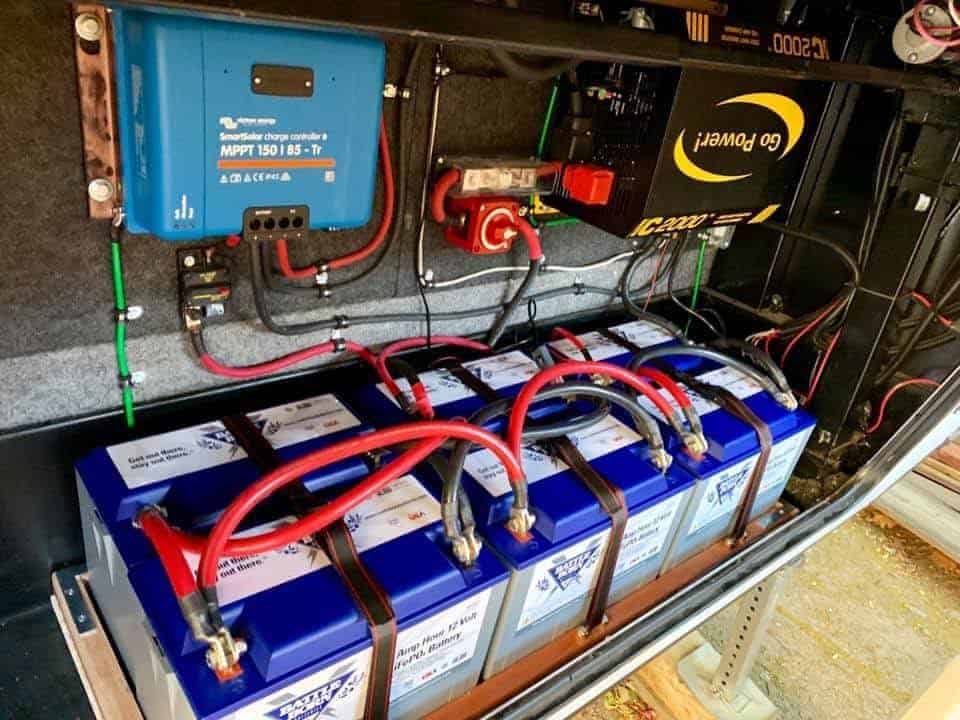
Which Gauge Wire Size Is Appropriate For Battery Cables?
Keep in mind that selecting the right wire gauge for your battery cable depends on two things: the current and the distance.
Knowing how to determine your current need now leaves you with just the task of determining how long your cable runs must be.
Always remember that shorter is preferable.
Reduced cable implies reduced weight and expense.
You can easily search out the recommended battery cable size once you know the cable length and current.
Choosing the appropriate wire gauge for your RV batteries is made easier by the wire size table below.
This table makes it clear that smaller cables may be used when the current is lower and the distance is shorter.

You’ll see as well that the necessary cable thickness grows with both current and distance.
If anything gets unclear, see an expert; trying to figure out which wire gauge to use is not the answer.
Making The Right Battery Cable Size Selection
Small yet crucial, RV battery cables are a crucial component of your RV’s intricate and fundamental system.
Selecting the incorrect size battery cable may result in additional expenses, aggravation, and even a fire.
It need not be difficult to choose the right battery cable size for your system.
To ensure the success of your RV battery upgrade job, use the aforementioned advice or get in touch with a Battle Born specialist with any queries!

